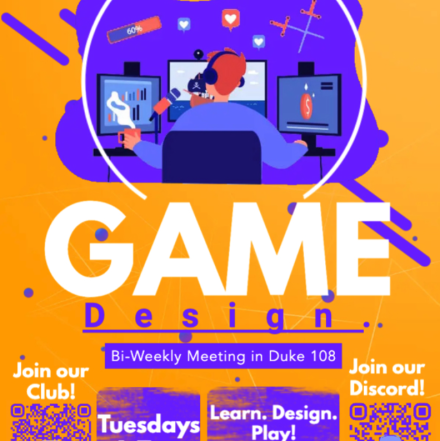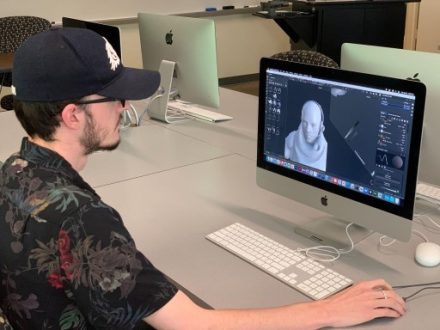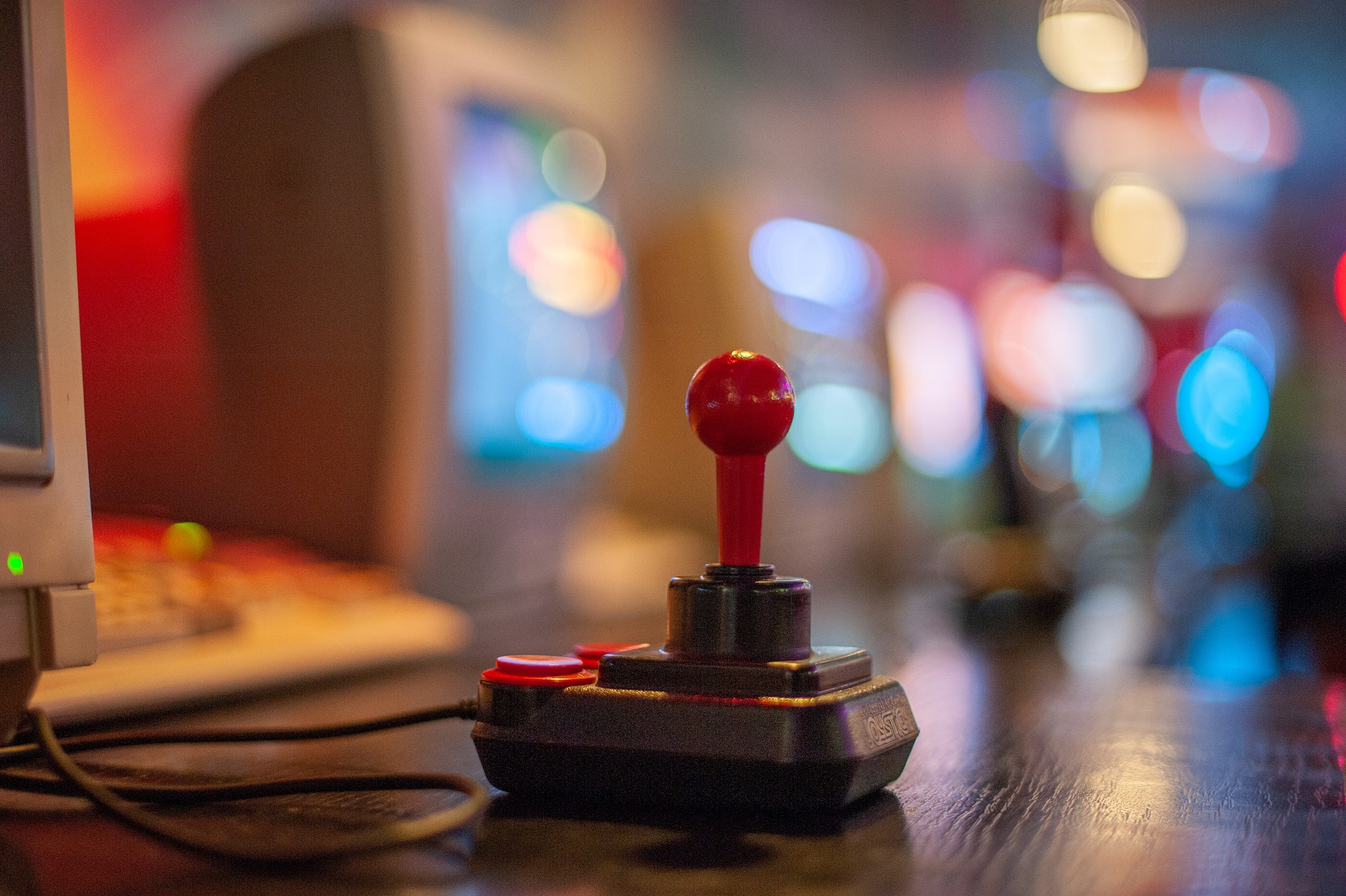Elon students are gathering outside the classroom to explore new ways to study, design and implement computer games.
Elon’s Game Design Club was launched this spring as an organization for students across all academic backgrounds to explore how computer games are structured, designed and played.
“The main goal of this club is to expand the knowledge of Game Design outside the coast,” explained Assistant Professor Pratheep Paranthaman, adviser of the Game Design Club. “This club is more geared towards what we do in the Game Design minor, which is more interdisciplinary. We have students coming in from multiple departments like English, art, cinema and television arts, as well as computer science. One of our primary goals is to expand the design knowledge outside of these classes and make it more inclusive for students in all departments.”
 Club president Mohammed Al Fadaam ’23 has been interested in game design and computer science since he was a young boy. Now as president of the Game Design club and soon-to-be college graduate, he has transformed his passion into a potential career path.
Club president Mohammed Al Fadaam ’23 has been interested in game design and computer science since he was a young boy. Now as president of the Game Design club and soon-to-be college graduate, he has transformed his passion into a potential career path.
“I’m still looking for an internship with a game design company. Hopefully, I can apply to Epic Games,” Al Fadaam explained. “I’m working on my portfolio right now with everything I’ve worked on, and hopefully I can submit it to them and get admitted doing an internship with them this summer.”
The club has had two meetings this spring, with the club president and vice president setting the agendas. Prior to the meetings, they discuss and reflect on their plans with Paranthaman to make sure they are on the right track to meet their primary goals for the semester.
“One of our club activities is what we like to call, ‘Game-Play Analysis,’” Paranthaman explained. “We pick up any new video game that has come out recently or games from the past, and we have students play that game for a while to observe aspects within the game: technical design, visual effects, all those technical components. After that, we give them time to discuss their perspectives on all the design elements.”
For Al Fadaam, this is a treat, as it gives students the chance to explore the different worlds, fantasies and opportunities provided by game design.

“Have you ever dreamed of a world that you wish to be true, something so magnificent and extraordinary, but you just can’t bring it to words?” Al Fadaam asked. “Doing game design, you can do that. Game design is a passion, not just because of the gameplay, but it’s also because of everything else involved in it. It’s also the story of that of a great movie or TV series that make amazing visuals that make you feel like you’re living in a high-quality, animated movie.”
The Game Design Club has also allowed for many professional development opportunities, with speakers coming to give lessons about career experience, in addition to learning the actual process of gam- making.
“Getting into it early is one of the main things I’ve learned,” Al Fadaam explained. “You don’t even have to make a name for yourself, but just get into everything early and try to score a scholarship. Eventually, you’ll make your way into it. It’s hard, but it’s not an impossible goal. It’s extremely achievable.”
To help students build the necessary skills, the club has organized boot camps to give students hands-on experience.
“In making game design systems from scratch, it’s a big topic,” Paranthaman explained. “There are multiple components attached to it. We use boot camps, which are short, intense sessions on a particular topic in game design. Let’s say, for example, we do a level design boot camp. You’d see all those quick tools you’d use for designing levels. We have these multiple boot camps in different topics, and then we work in Game jams, which are those evenings where you get a particular team and you give them a time, probably morning, and then you have to complete the game by evening. This would also promote students to collaboratively work and think.”
Overall, the work, hands-on experience, and sense of reward that comes with joining the Game Design Club is what makes the club and group of students so special. Learn more about the club on Phoenix Connect or contact the club adviser Assistant Professor Pratheep Paranthaam.



